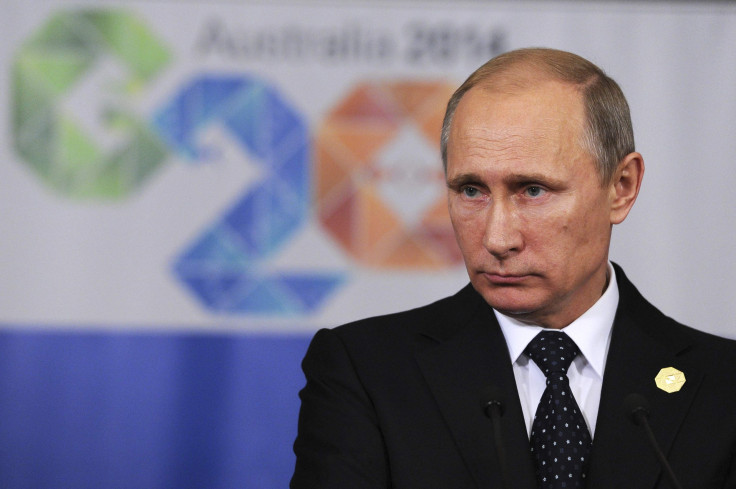Putin's Aggressive Stance On The West And Ukraine Unlikely To Change Even As Economy Plummets

The Russian ruble has experienced its biggest single-day collapse since Russia defaulted on its debt in 1998, and the Russian economy, hit by Western sanctions, is shrinking -- but that crisis is unlikely to change President Vladimir Putin’s aggressive approach toward the West and Ukraine, analysts said.
“I don’t see Putin backing down even as this horrible, utterly dire economic crisis that they are staring into unfolds,” said Emma Ashford, a research fellow and expert in Russian foreign policy at the Washington-based, libertarian-leaning Cato Institute. “The only thing that he’s got going for him with the Russian people is that he’s being seen as a very strong leader, taking a strong stance on Ukraine.”
However, Western governments may use Russia’s economic difficulties as leverage to pressure for change, in particular in Ukraine, where Russia is supporting a separatist war in the east of the country.
Plummeting oil prices are hurting Russia, one of the world's biggest oil producers, as Western sanctions over its involvement in Ukraine bite into the economy. On Monday, the central bank raised interest rates from 10.5 percent to 17 percent to stop the currency's drop versus the dollar and the euro. That did not help, and the ruble kept falling, to above 80 rubles per dollar. A sell-off in Russian bonds exacerbated the crisis, although global markets reacted calmly. Statements by U.S. Secretary of State John Kerry, who said that Russia had made constructive moves toward easing tensions in Ukraine and that U.S. sanctions could be lifted, may have played a part in stabilizing the climate.
The lifting of sanctions would do little to ease an economic slump largely due to other factors, Ashford said, but it would help give Russia more tools to fight it. Sanctions are “making it harder for Russia to solve the crisis,” she said. “A lot of the things Russian companies would normally do in this kind of crisis are shut off because they cannot access international financing in the same way.”
Putin addressed the dire economic situation in a speech last week, blaming currency speculators -- a rhetoric that Sarah Lain, a research fellow at the Royal United Services Institute in London who focuses on Russia, said he and Russia's increasingly government-controlled media will continue to push. But in reality, Russia may take a softer line on Ukraine to diminish the blow to the currency and bond markets, she said. “[Foreign Minister] Sergey Lavrov has already said that [Ukrainian President] Poroshenko is the 'best chance' for Ukraine, in a recent interview, and that Russia does not intend for a 'second Crimea' in Eastern Ukraine,” Lain said.
If Putin proceeded to distance Russia from the West, he would have one source for financial help, China, said Lain. For now, according to Lain, he may not budge. “I’m not sure," she said, "that this situation will necessarily weaken Putin’s military and political stance.”
© Copyright IBTimes 2024. All rights reserved.












